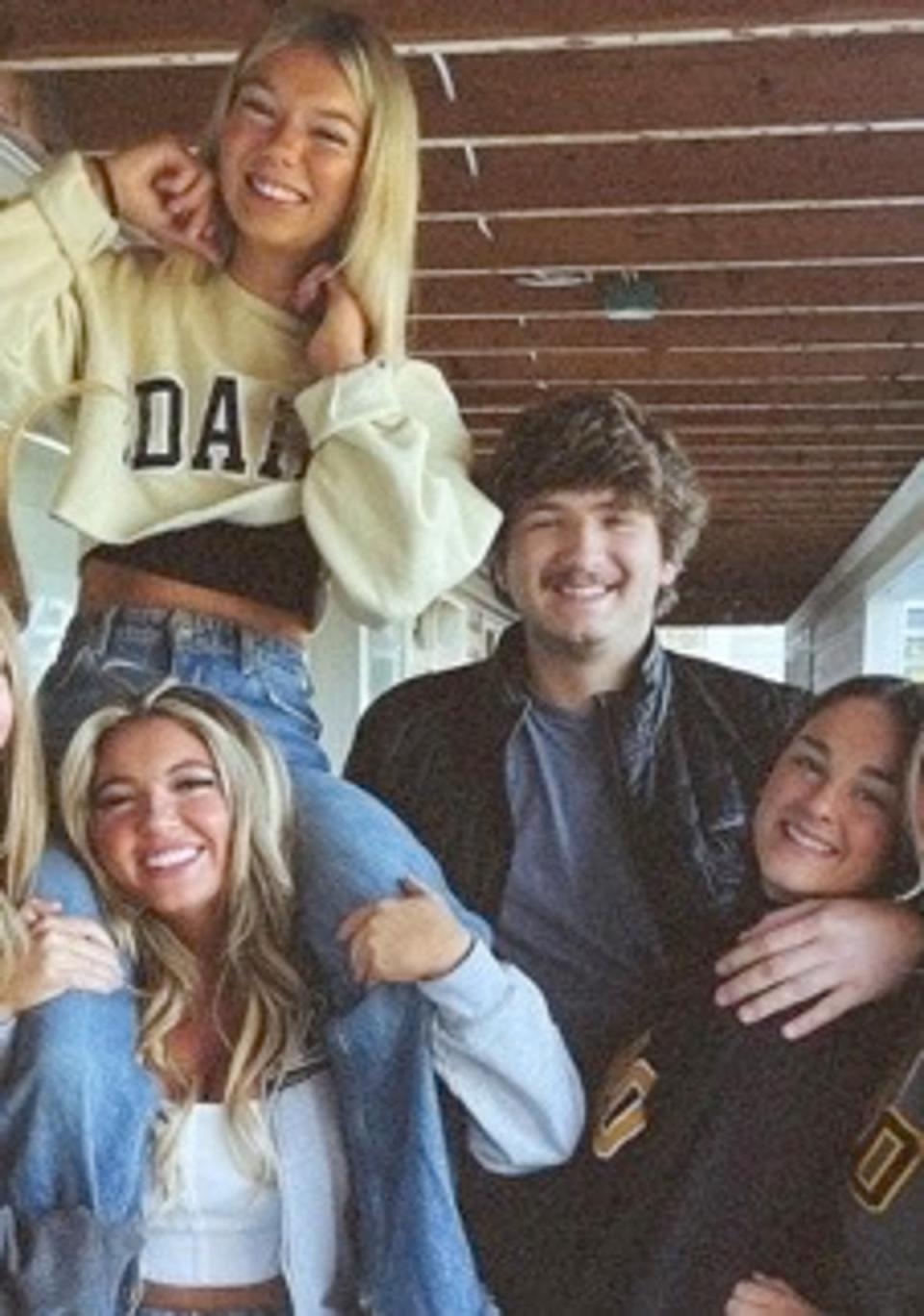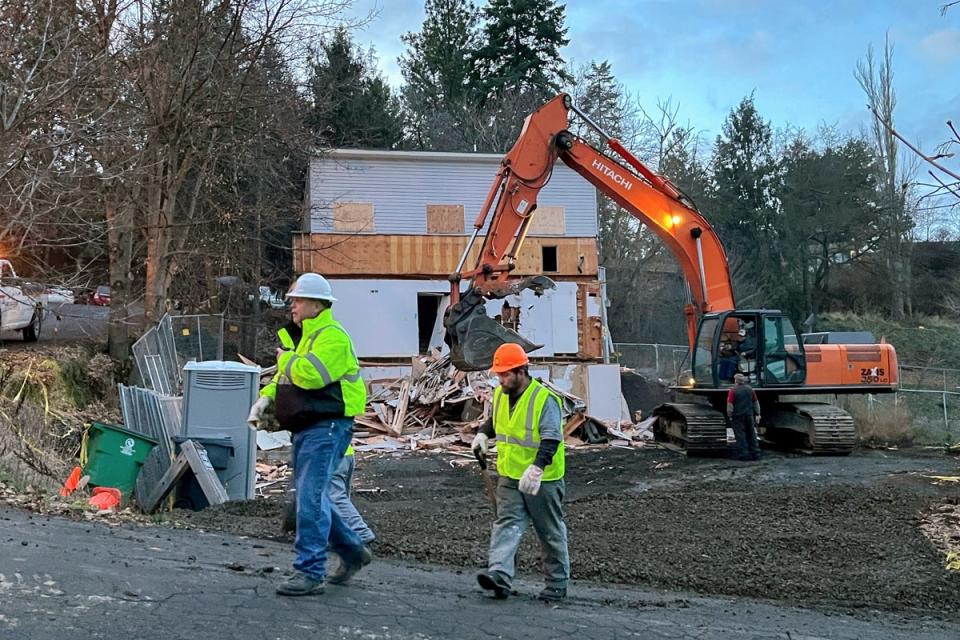Idaho murders victim’s family isn’t buying Bryan Kohberger’s alibi
The family of Kaylee Goncalves, one of the four murdered University of Idaho students, have responded to suspect Bryan Kohberger’s alibi statement, saying that they now “feel even more confident in the prosecution of the Defendant”.
Mr Kohberger was on an early morning drive at the time of the killings in November 2022, according to a legal filing from his defence offered late on Wednesday.
“Mr. Kohberger was out driving in the early morning hours of Nov. 13, 2022; as he often did to hike and run and/or see the moon and stars,” the document reads.
“He drove throughout the area south of Pullman, Washington, west of Moscow, Idaho including Wawawai Park,” the filing continues.
The defence plans to call a cell tower data expert to help corroborate claims of the 29-year-old’s location at the time of the killings, per the filing.
The defence also suggested in its action that “additional information” about Mr Kohberger’s whereabouts, as well as “critical exculpatory evidence,” could be forthcoming.
The Goncalves family was not convinced by the explanation.
“The Defense’s claim is that the Defendant was driving late at night hiking/running and stargazing. We are not sure why it has taken over a year for this to come out as those don’t seem to be complicated activities. We believe that If this alibi had any weight it would have been submitted months ago. It is also in direct conflict with the Probable Cause affidavit that states that the Defendant’s phone was turned off between 2.47am and 4:.8am,” the family wrote in a Facebook post.

“So if the Defendant was driving around and there is cell phone information that he was in a different place it would be either before or after the times of the murders. Hence not really an alibi. We continue to look forward to justice in this case and can now put this part of the proceeding behind us.”
Mr Kohberger is accused of killing four University of Idaho students living in an off-campus house: Madison Mogen, Kaylee Goncalves, Xana Kernodle and Ethan Chapin.
He is accused of breaking into an off-campus student home on King Road in the town of Moscow in the early hours of 13 November 2022 and stabbing the four students to death with a large, military-style knife.

Two other female roommates lived with the three women at the property and were home at the time of the massacre but survived.
One of the survivors – Dylan Mortensen – came face to face with the masked killer, dressed in head-to-toe black and with bushy eyebrows, as he left the home in the aftermath of the murders, according to the criminal affidavit.
In May of 2023, Mr Kohberger declined to enter a plea in the case, prompting a judge to mark his stance as pleading not guilty.
A previous filing in August also claimed Mr Kohberger was out for a drive around the time of the murders.
That document, however, contained less detail, noting that the student was “not claiming to be at a specific location at a specific time.”
It read in part: “Mr. Kohberger has long had a habit of going for drives alone. Often he would go for drives at night.
“He did so late on November 12 and into November 13, 2022. Mr. Kohberger is not claiming to be at a specific location at a specific time; at this time there is not a specific witness to say precisely where Mr. Kohberger was at each moment of the hours between late night November 12, 2022 and early morning November 13, 2022.

“He was out, driving during the late night and early morning hours of November 12-13, 2022.”
Prosecutors argued this claim was too vague.
Wednesday’s filing came in just before a deadline to submit additional information related to his alibi defence.
The updated alibi defence claims are the latest development in the high-profile trial.
Earlier this month, Mr Kohberger’s defence requested discovery requests be placed under seal to because “the documents contain facts or statements that might threaten or endanger the life or safety of individuals”.
Idaho intends to seek the death penalty against Mr Kohberger.
His defence sought earlier this year to move the trial out of Latah County, arguing that “extensive, inflammatory pretrial publicity” would make it unfair.
In March, the Idaho Supreme Court denied a request from Mr Kohberger for his grand jury indictment to be thrown out.

A trial date has not been set.
Prosecutors have tied him to the murders, in part, through surveillance footage showing his white Hyundai Elantra travelling to and from the crime scene.
An affidavit, released in January last year, outlined some of the evidence against the accused killer – including his DNA on a knife sheath left behind at the scene of the murders, the surveillance footage and cellphone activity.
The sheath – for a military or Ka-Bar style knife – was found partly under Mogen’s body after she and Goncalves were found stabbed multiple times on Mogen’s bed on the third floor of the home.
DNA on the button clasp of the sheath was then found to match that of the 28-year-old accused killer.
Mr Kohberger’s attorneys have sought to cast doubts on the strength of this DNA evidence, in particular the use of genetic genealogy.
According to the affidavit in the case, the FBI used genetic genealogy databases to try to identify the DNA source.
Trash was then collected from the suspect’s parents’ home in the Poconos Mountains and a familial match – from Mr Kohberger’s father – was made to the sheath, according to the criminal affidavit.
Following Mr Kohberger’s arrest on 30 December, DNA samples were then taken directly from the suspect and came back as “a statistical match”, say prosecutors.


